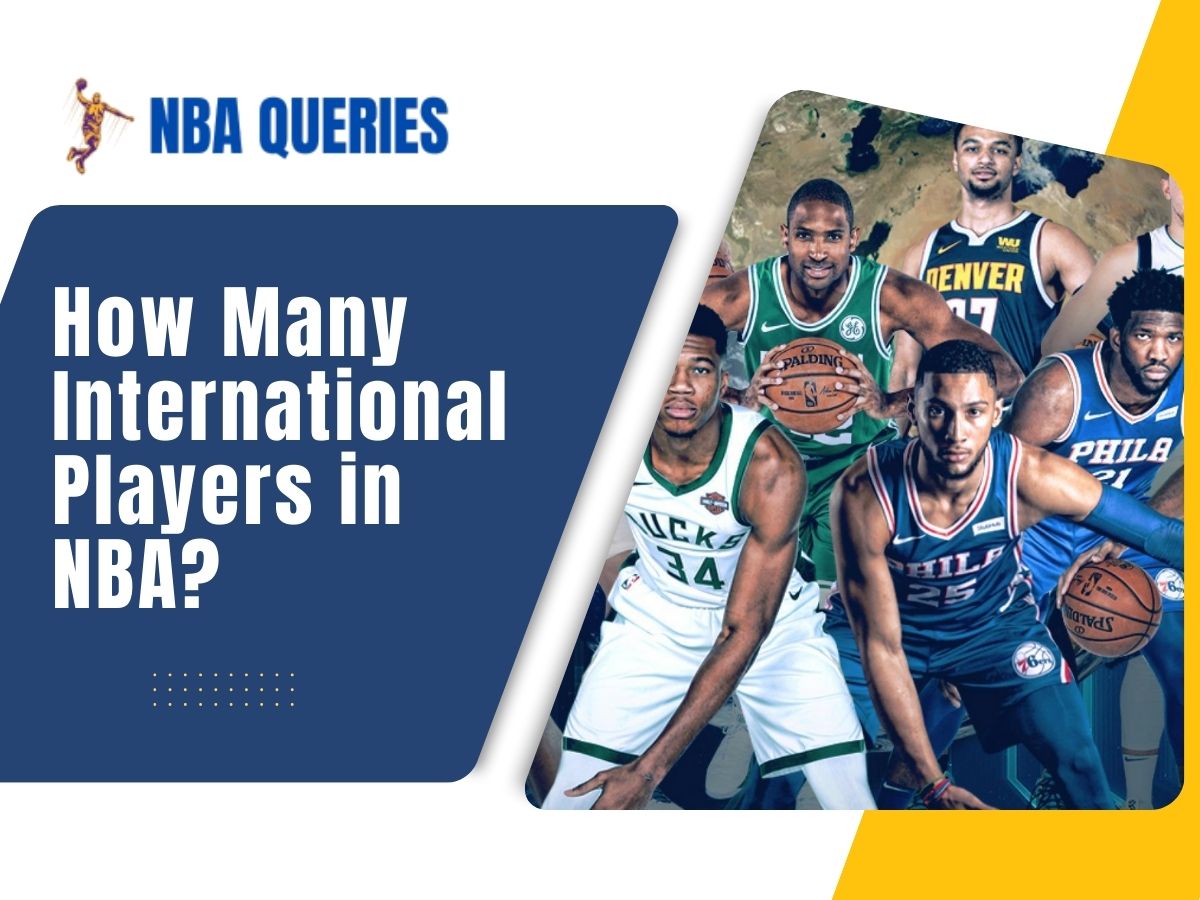The National Basketball Association (NBA) has long been a global phenomenon, attracting talent from all corners of the world. As the league continues to expand its reach, the number of international players on NBA rosters has surged. In this article, we’ll delve into the intricacies of international representation in the NBA, exploring the countries contributing the most players, notable stars, and the impact of this global influx.
1. The Global NBA Landscape
The NBA is a melting pot of cultures, languages, and playing styles. Let’s start by examining the current landscape:
- Record-Breaking Numbers: The 2023-24 season boasts a staggering 125 international players from 40 countries and territories across six continents. This marks the third consecutive season with at least 120 international players on opening-night rosters, emphasizing the league’s global appeal.
- Canada Takes the Lead: For the 10th consecutive year, Canada leads the pack as the most-represented country outside of the U.S. With 26 Canadian players, the Great White North continues to produce top-tier talent. France follows closely with 14 players, showcasing its basketball prowess.
- European Dominance: Europe remains a hotbed for NBA talent. A total of 64 European players grace opening-night rosters. Among them are luminaries like Giannis Antetokounmpo (Greece/Nigeria ties), Luka Dončić (Slovenia), and Nikola Jokić (Serbia), who have left an indelible mark on the league
- African Influence: Fifteen players hail from Africa, including the reigning MVP Joel Embiid (Cameroon). The continent’s impact on the NBA continues to grow, with players like Pascal Siakam (Cameroon) and Rui Hachimura (Japan) making waves.
2. The Mavericks and Thunder Lead the Way
Now, let’s explore which NBA teams embrace international talent:
- Dallas Mavericks: The Mavericks and the Oklahoma City Thunder share the distinction of having the most international players, with eight each. These teams recognize the value of diverse skill sets and global perspectives.
- Toronto Raptors: The Raptors, with seven international players, maintain their commitment to fostering a multicultural roster. Their blend of talent from various backgrounds contributes to their competitiveness.
- San Antonio Spurs and Boston Celtics: Both the Spurs and the Celtics feature six international players. These organizations prioritize scouting and development on a global scale.
3. International Stars and MVPs
The NBA’s international stars are not just role players; they’re MVP contenders:
- Joel Embiid: The Cameroonian center, representing the Philadelphia 76ers, clinched the 2022-23 Kia NBA MVP Award. His dominance in the paint and versatility make him a force to be reckoned with.
- Luka Dončić: The Slovenian sensation, leading the Dallas Mavericks, consistently dazzles fans with his court vision, scoring ability, and flair. He’s a perennial MVP candidate.
- Giannis Antetokounmpo: The Greek-Nigerian forward, a two-time MVP and 2021 NBA champion, epitomizes the global impact of the game. His athleticism and work ethic inspire players worldwide.
4. Impact on Team Dynamics
Diverse Playing Styles
International players bring a rich tapestry of playing styles to the NBA. Let’s explore how this diversity influences team dynamics:
- Versatility: European players, often groomed in competitive leagues, exhibit versatility. They seamlessly transition between positions, making them valuable assets. For instance, Nikola Jokić (Serbia) of the Denver Nuggets is not your typical center; his court vision and passing resemble that of a guard.
- Defensive Prowess: African players, with their athleticism and defensive prowess, alter the game’s complexion. Serge Ibaka (Republic of the Congo) made a name for himself as a shot-blocking specialist during his tenure with the Oklahoma City Thunder.
- Outside Shooting: South American players, particularly from Argentina and Brazil, excel in outside shooting. Manu Ginóbili (Argentina) and Leandro Barbosa (Brazil) lit up the league with their three-point accuracy.
5. Strategies and Coaching Adaptations
- International Influence on NBA Strategies: Coaches adapt their strategies to accommodate international talent. The rise of the “positionless” basketball owes much to European players. Teams now prioritize ball movement, spacing, and unselfish play, mirroring the European style.
- Language and Communication: With players speaking different languages, communication becomes an art form. Coaches and teammates learn key phrases to convey instructions during high-pressure moments. The San Antonio Spurs, under Coach Gregg Popovich, have mastered this art, thanks to their international roster.
6. The Draft and Scouting Process
- Global Scouting Networks: NBA scouts crisscross the globe, attending tournaments, leagues, and youth championships. They unearth hidden gems like Gobert (France) and Jokubaitis (Lithuania). The draft has become a global spectacle, with fans eagerly awaiting the next international sensation.
- Development Leagues: The NBA G League and European leagues serve as incubators for international prospects. These leagues provide exposure, coaching, and competition, nurturing raw talent into NBA-ready players.
7. The Future of International Basketball
- Youth Academies: NBA teams invest in youth academies worldwide. The Basketball Without Borders program identifies and nurtures young talent. The dream of playing in the NBA now extends beyond U.S. borders.
- Global Fan Base: International players connect fans across continents. A kid in Manila idolizes Stephen Curry, while a teenager in Madrid wears a Dončić jersey. The NBA’s global reach ensures its longevity.
In the End:
The NBA’s embrace of international players transcends mere statistics. It’s about cultural exchange, shared passion, and the beautiful game of basketball.

